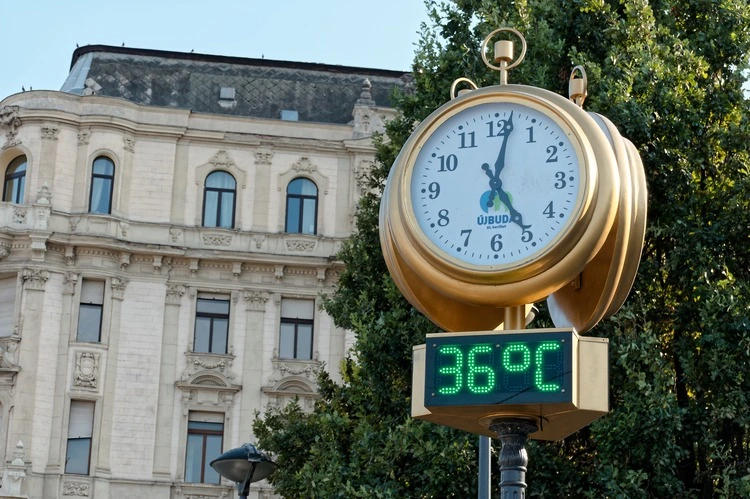
2024 was the hottest-ever year recorded. Is the ‘shifting baseline’ phenomenon stopping us from reacting?
By
Earlier this week, Copernicus announced 2024 was the warmest year on record. Not only that, but it marked the first year in which temperatures exceeded 1.5C above pre-industrial levels. These two facts are worrisome. Yet they are often coming with a caveat, a collective shared sigh of relief: that luckily, we haven’t yet breached the Paris Agreement goal, which instead takes longer-term temperature averages rather than the figures from a single year.
This is true – the threshold is yet to be passed, but do we really need to reach such a dire climate emergency in order to be worried? Are we becoming accustomed to the ever-rising temperatures of our planet and the innumerable ways in which its ecosystems are shifting for good?
Our shifting baseline
Scientists have a name for the way in which society can become tolerant to the gradual deterioration of its natural environment: shifting baseline syndrome (SBS), or environmental generational amnesia.
Enjoying this article? Check out our related reads:
Essentially, these terms explain how there is a slow, but progressive, change in the accepted norms of our planet across generations. Where a baseline in a generation fifty years ago may once have had a much higher threshold, over time they can shift so that new generations possess much lower ones. Put simply, what may be seen as a degraded landscape today by our ancestors could be viewed as healthy by modern standards.
The terms were first coined back in 1995 by scientist David Pauly, who observed how fishermen would claim low fish yields had always been that way, despite evidence suggesting a marked decline.
The fishermen’s declining ‘baseline’ for the quantity of fish present was largely based on the state of the fishery at the beginning of their careers. As overfishing, pollution and other factors led to lower fish catch each year, successive generations of fishermen would begin to think these depleted levels were entirely normal.
Other examples including the declining presence of starling flocks – who once sprawled across the skies above cities – along with US national parks, sites of ‘nature’ for the modern-day generation but perhaps viewed as regions that pollute for others due to the high volume of car traffic winding through their vast expanses.

Declining baselines are a real threat when it comesw to climate action. That’s because people’s perception of the environment is often a good indicator of whether they will support policies and practices to help better the planet.
In a study conducted last year, published in BioScience, researchers found that younger individuals tend to hold lower environmental baselines across various aspects of the environment, such as climate change, biodiversity loss, pollution and natural resource depletion. It’s troublesome to say the least.
SBS can lead to disastrous consequences – not only an increased acceptance of environmental degradation, but decreased support for conservation and management policies from the public.
Policymakers and resource managers may inadvertently create ambitious goals for the climate, potentially diminishing the rate at which serious threats such as greenhouse gas emissions can be curbed. Amid the backdrop of a planet which is already suffering from an increased pace of environmental destruction – and the news of 2024 as its hottest year yet – it is a recipe for disaster.
How do we solve it?
There are ways in which we can manage SBS across society. One is that of environmental restoration, particularly rewilding, which will allow historical baselines to be restored and highlight how certain ecosystems once thrived in a very different way to current standards. Better environmental education, across all age groups, would also improve the likelihood of individuals’ willingness to protect and conserve ecosystems around them.
Another approach to tackling SBS is more robust data collection, ensuring current and future generations have access to clear data that expresses in no uncertain terms how the planet is changing.
Reconnecting with nature on a more regular basis – and removing what is known as ‘extinction of experience’ – will also allow individuals to become more in tune with natural environments around them and notice changes as they occur.
Ultimately, realising how SBS can manifest within society is key. In doing so, better tools can be utilised to mitigate against its effects, creating more robust long-term, multi-generational plans of protecting the environment that factor in the tendency for generations’ baselines to dwindle.
Without such an approach, we may find ourselves in a situation where generations are unable to grasp the extent to how damaged the planet truly is, accepting a new normal far worse than anything seen before.




